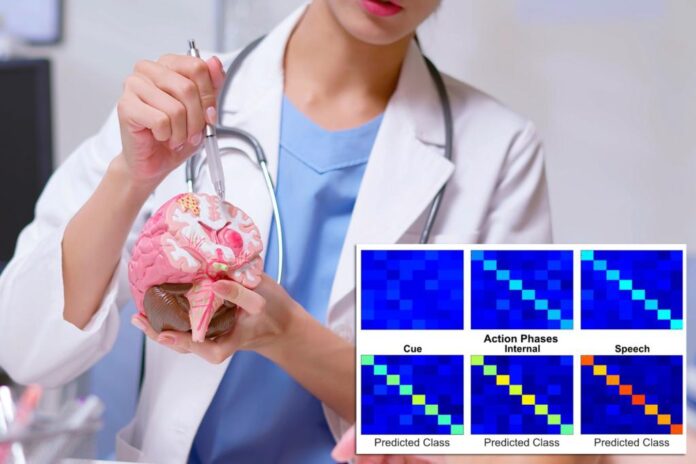It’s unthinkable.
Researchers at the California Institute of Technology have revealed “significant” results in tech advancement that, in essence, can read people’s minds.
For years, Caltech’s T&C Chen Brain-Machine Interface Center has been leading the way in its namesake technology — BMI for short — to create devices to aid patients with speech and non-verbal disorders.
A new study from the center showed strides in a brain-machine interface to read a person’s thoughts and plainly translate them into words for all to see.
Signals read from the brain were “translated” and then converted “into text in real time.”
“We captured neural activity associated with internal speech — words said within the mind with no associated movement or audio output,” the team wrote.

Researchers attached electrodes to a portion of the brain’s supramarginal gyrus — a crucial component for the understanding and processing of language — within the parietal lobes of two study participants.
They were then shown a visual or spoken prompt and asked to think of the word demonstrated — such as spoon, python or battlefield, according to the Daily Mail — and the device subsequently was able to visualize what was depicted.
Researchers were able to decode the thoughts of the two participants into words with 79% accuracy.

Now, researchers believe that the supramarginal gyrus “may be able to represent a much larger internal vocabulary” of the human mind.
At the University of Texas in Austin last year, separate research successfully used AI-powered semantic decoders to accurately analyze a person’s brain activity. The noninvasive procedure was done through functional magnetic resonance imaging (fMRI) readings.
Though the tech could be used for individuals who can’t speak — like stroke victims — scientists were aware that the AI could potentially fall into the wrong hands.
“We take very seriously the concerns that it could be used for bad purposes and have worked to avoid that,” lead Texas researcher Jerry Tang said.
“We want to make sure people only use these types of technologies when they want to and that it helps them … Regulating what these devices can be used for is also very important.”



